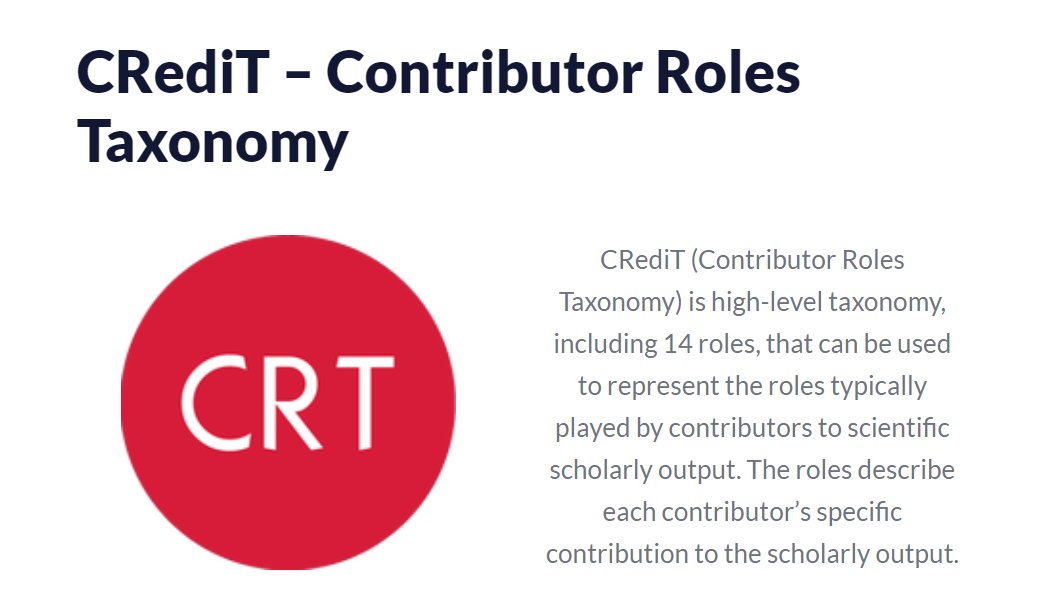Assigning credit for academic work is very important for careers. Sociology does it, no offense, stupidly (and it's not alone in this). Author order is a ridiculously imprecise measure, and sociologists further undermine its utility by arbitrarily going alphabetical or not, /1
with or without explanation. And the explanation is often just a rationalization for not giving information, like asserting that contributions are equal when authors are alphabetical, or, even more confusingly, when they're not. Fortunately, now that adding words to a /2
publication doesn't cost anything, we can easily (at least partially) fix this by just describing the contributions of the team. A simple system is the Contributor Roles Taxonomy (CRediT) https://casrai.org/credit /3
Even if our journals don't formally employ this taxonomy (I don't know any sociology journals that do), you can do it in your acknowledgments. Here's is an example I customized for sociology: /4
You can find other examples easily. More reading:
https://onlinelibrary.wiley.com/doi/abs/10.1002/leap.1210
https://www.pnas.org/content/pnas/115/11/2557.full.pdf
/5
https://onlinelibrary.wiley.com/doi/abs/10.1002/leap.1210
https://www.pnas.org/content/pnas/115/11/2557.full.pdf
/5
This doesn't fix everything with databases and citations. But that shouldn't hold us back. People deserve appropriate credit for their work. Mentors should signal this to junior people. Juniors should be the change they want to see. Senior people should set better policies /6
Naturally, I end with a recommendation to read and share (especially with grad students) my report, "Scholarly Communication in Sociology," which covers this and lots of other things. /7 https://opensociology.pubpub.org/pub/scis/release/2.

 Read on Twitter
Read on Twitter



